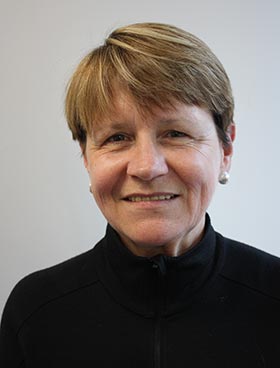
NZNO kaiwhakahaere Kerri Nuku and policy analysts Leanne Manson and Lucia Bercinskas were among nursing representatives who in April met the Ministry of Health (MoH) team leading the EOLCA’s implementation, to ensure nurses’ views inform guidelines to it.
“While RNs [registered nurses] do not have an explicit ‘specified role’ under the Act, it is undeniable that nurses will be profoundly affected…,” an NZNO document prepared for the MoH states.
Bercinskas told Kai Tiaki Nursing New Zealand that nurses needed clear guidance on what they can and cannot do. “What are the parameters? Who does what? How does conscientious objection work? Who is going to be looking after the patient’s family?”
Clarity was needed on:
- Conscientious objection and how it might be applied in different situations – and whether it might affect a nurse’s employment.
- Cultural considerations including a culturally-safe process and equity in access to quality end-of-life care (EOLC).
- Scope of practice and training in EOLC.
- Professional obligations and patient rights.
- Patient eligibility, the meaning of “unbearable suffering” and communicating this.
- Improper pressure and what that looked like.
- Managing patients wishing to initiate – or defer – EOLC.
The EOLCA provides that a nurse practitioner (NP) must only act under instruction from the attending medical practitioner. NZNO’s paper suggests that guidance should make clear that this is a requirement, even though this was not consistent with the generally accepted NP scope of practice.
In addition, NZNO suggests the EOLCA could be misconstrued to require a NP called in by a medical practitioner to administer the medication. Guidance must clarify that this should not occur without prior NP involvement with the patient.
Guidance was also needed on the NP’s role at the time of administering the medication, if doubt or other barriers arose, NZNO’s paper said.
EOLC was a “fraught” issue, said NZNO medico-legal lawyer, Sophie Meares, who anticipated complaints being laid against nurses if things went wrong. Guidance and training were essential, she said.
Chief nursing officer Lorraine Hetaraka confirmed she would be part of the governance group overseeing assisted dying, Support and consultation for end of life in New Zealand (SCENZ).
“I recognise the importance of having a nursing perspective on this governance group as patients and whānau in our hospitals, primary care and community settings alike rely heavily on the services nurses provide.”
A MoH survey of 1980 health professionals earlier this year found 30 per cent were possibly or definitely willing to participate.


